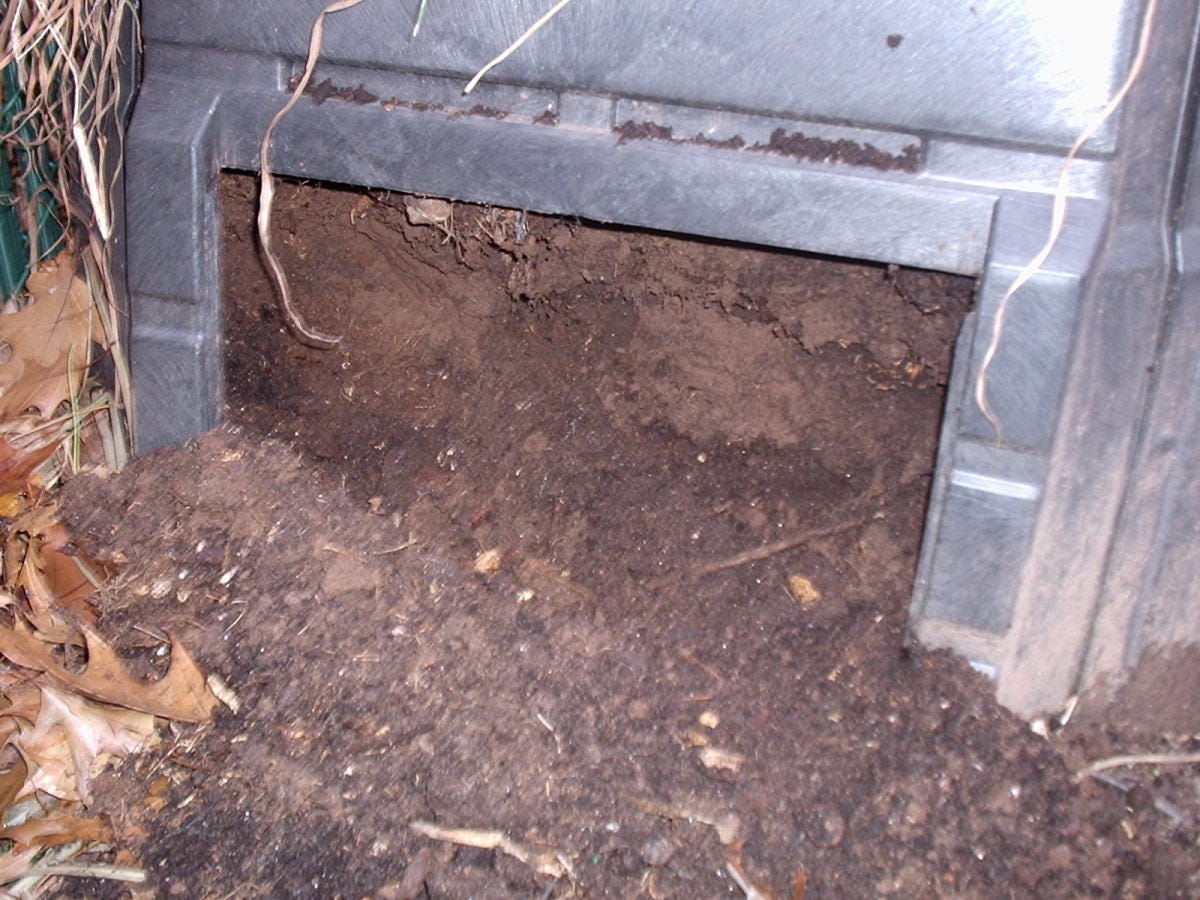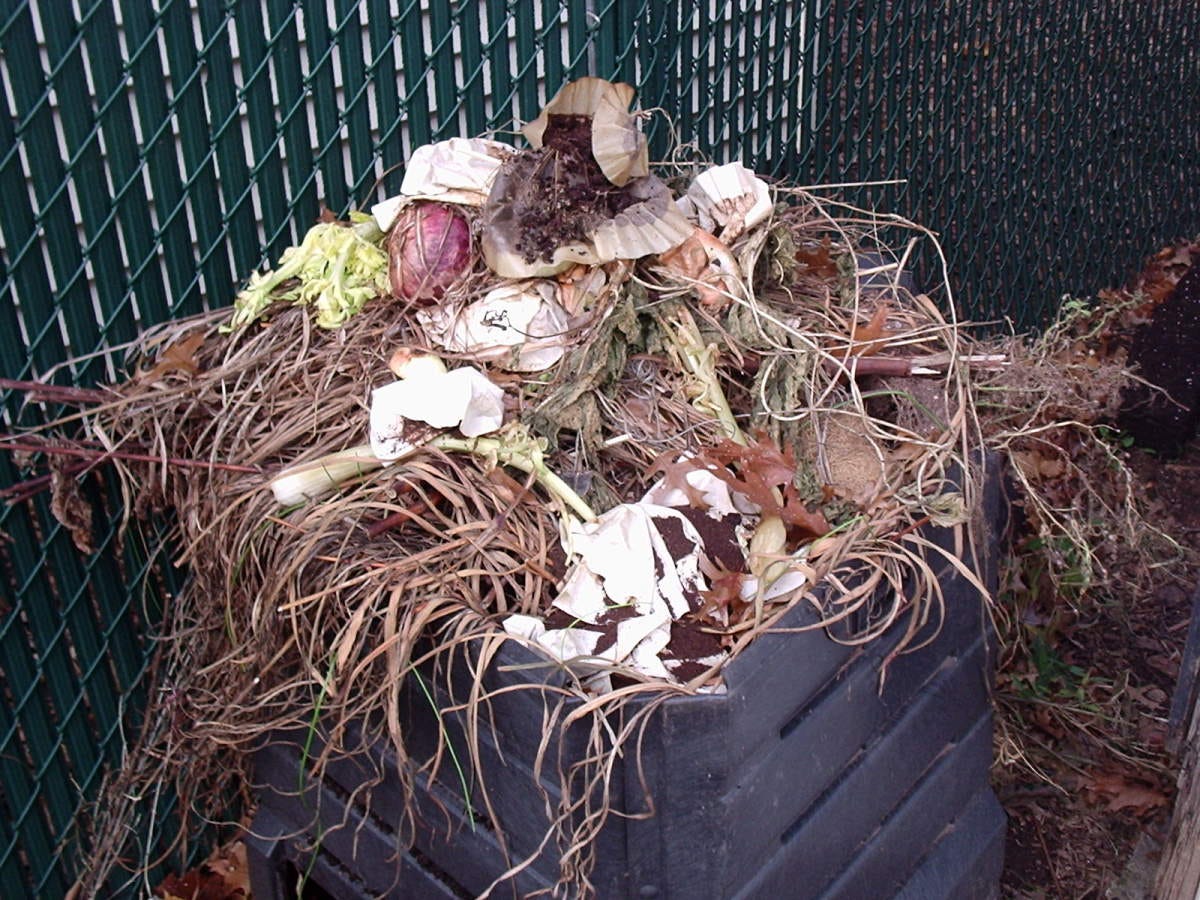How to Compost the Easy Way
You have everything on hand already to make world-class compost without spending a penny
What is the Science of Composting?
Entire books have been written about the science of composting. Aspiring organic gardeners are told that they need not just the right container, but also the right number of containers. They need to have the correct ratio of brown to green. Whole chapters are devoted to explanations of "brown" and "green". And once one has the correct containers and the correct ratio of ingredients, then one must constantly monitor the temperature of the compost to ensure that it is neither too hot nor too cool. A thermometer is strongly recommended. And don't forget to turn it to keep the composting process going, using the correct tool of course. But don't turn it too often because you might disrupt the composting process.
I'm so glad that I didn't start studying the science of composting until after I started composting. If I had done my research first, I would have been too intimidated to have even begun. Done "correctly", composting is expensive and time consuming. I am the world's laziest composter and yet I make world-class compost.
How I Learned to Compost
The best way to learn anything is by making mistakes. Boy, did I make a lot of them learning how to compost.
Mistake #1 - Buying a Composter I went to a big box store and picked out an expensive plastic composter. Recycled plastic, of course. It had a lid with slits to allow moisture in and sliding doors on the bottom to take compost out. Perfect, right? Wrong.
You don’t need to buy a composter. You can make one. Four poles and netting. Discarded wooden pallets. Concrete blocks. Heck, you don’t even need a container. Just pile your ingredients in a corner of your yard. Free-form composting! That’s the way Mother Nature does it. Have you ever noticed the rich soil in a forest or wild field? Compost, my friend. Everything that dies falls to the ground and decomposes making that black, rich soil. And no one ever takes its temperature or turns it.
Mistake #2 - Placing My Composter Out of Sight Initially, I placed my composter behind my shed where it couldn’t be seen. Turned out that was too shady. Compost needs the heat from sunlight to “cook” correctly. So I moved it to a corner of my sunniest flower bed and planted lots of tall flowers around it to hide its black plastic ugliness.
Mistake #3 - No Need For a Lid Remember that special lid that was supposed to allow moisture in? No matter how much it rained, very little moisture got in. Compost needs moisture. Remember, it is living organisms that are breaking down your ingredients. You need to keep those critters warm and wet. I removed the lid.
Even with the lid off, during the Dog Days of Summer in August when it was hot and humid but no rain fell, I noticed that my composter started to dry out. So I started watering it. Eventually I got into the habit of watering my composter whenever I watered my flowers. My neighbors thought I was crazy but while they were spending a fortune on MiracleGro and wreaking havoc with the eco-system in their yards, I was saving money and the planet by using my homemade compost.
What to Put in Your Composter
The list of things that can go into your composter is endless, so I’ll give you the list of things to never, ever put in your composter. Ready? Meat, fat and bones. That’s it. As long as you remember that rule, your composter will never smell or attract animals. It will only smell and attract animals if you put in meat, fat or bones. So don’t do it. Keep them out of the mix and the only thing you will attract are those annoying little flies that seem to come out of nowhere any time food is left out. But it’s okay because your composter is outside, not in your kitchen.
Anything else is fair game. A lot of it will come from your kitchen. Peels and cores from fruits. Parings from vegetables. Whole fruits and vegetables that are over-ripe or have begun to rot. Coffee grounds. Coffee Filters. Tea bags (staple removed, please). Egg shells. Leftover rice and pasta (as long as nothing has been put on them). Leftover French Fries and the paper towels they drained on (as long as you used vegetable oil). Lots of stuff from your garden will go into your composter. Weeds that you pulled. I love taking something that I don’t want (weeds) and making into something I do want (compost). Dead blossoms. Small sticks that blow down in storms broken into pieces. Prunings from your rosebushes and other shrubs cut into small pieces. Why the small pieces? They break down faster. Large pieces of wood could take a few years to totally break down.
Should Leaves and Grass Clippings be Added to Your Composter?
Another mistake I made was paying to take a class on composting. The woman who taught the class was so fanatical about composting that she kept a pile of leaves from the previous fall next to her composter so that every time she added something green (coffee grounds are green – who knew?), she could toss in some leaves to maintain that vital green/brown ratio.
Seriously? My leaves are too valuable to be thrown into my composter. I shred them and use them as mulch in my flower beds. I’ve never fully understood the whole green/brown ratio thing. You’re free to look it up. I just throw in everything except meat, fat and bones and end up with world-class compost.
Now about those grass clippings. Leave them on your lawn, please. If you bag when you mow, you are robbing your lawn of vital nitrogen. Think how much you pay for lawn fertilizer which is mainly nitrogen. Buy yourself a mulching mower which will cut up the grass clippings into small pieces as you mow and drop it back into your lawn and you will never buy lawn fertilizer again.
Should Compost be Turned?
I have never turned my compost. Honest. I tried once but I realized that my composter is tall and narrow and it was just too difficult to really get down deep and turn it without disrupting the center where all the action takes place. So I don’t turn it. And if you think about it, who is turning all that lovely compost in the forest? Granted, not all of the stuff I put into my composter actually breaks down. The stuff along the sides where it is cold in the winter doesn’t get broken down. No problem. When I remove my compost from the bottom, I just throw anything that isn’t compost yet back into the top of the composter to run through the cycle again.
How Warm Should Your Composter Be?
Remember we talked about those crazy people who actually buy thermometers to find out how warm their compost is? Believe it or not, there are instructions on how to heat up your compost if it isn’t warm enough as well as how to cool it down if it gets too hot. Sorry, I’d rather spend my time gardening so I have no idea how hot your composter should be. If that sounds callous, remember, no one has ever seen Mother Nature checking temperatures. Like the t-shirt says, compost happens.
How Many Composters do You Need?
Ideally, you should have three composters. One to put the current season’s “ingredients” in, one to “cook” and one with finished compost that you can use immediately. That’s ideally. I live in the real world. I live by myself in a little house with a little yard. I don’t generate enough ingredients to fill that many composters. So I have one. It works just like three. I put stuff in the top, it cooks in the middle and every spring I open the bottom and dig out the finished compost to spread around my gardens.
I think if I had a larger household and more gardens, I might trade up to two composters, alternating them each year. Three sounds a little excessive to me unless you have a large family and a large truck garden. Your experience may vary.
What is the Best Book on Composting?
After trashing all those solemn tomes on composting, there is one book that I recommend. It’s a book on soil called Teaming with Microbes: The Organic Gardener's Guide to the Soil Food Web by Jeff Lowenfels. The first part is a little difficult to get through but it sets the stage for the second part which talks about what you can do to conserve and improve your soil. This book explained so many of the things that had been working for me for years even though I had no idea why they worked. Including my method of composting. He calls it “cold composting” and says that it produces the most nutritious compost.
Nuff said.
I am an Amazon affiliate. If you purchase something using one of my links, I may earn a small commission. This will not affect the price you pay. Thanks for your support!






Glad you enjoyed it. You'll probably find some critters hibernating in your compost pile. I always do.
What a great read! This reminds me to check my compost pile tomorrow, I made it last year and I hope it has broken down nicely by now.